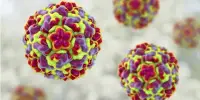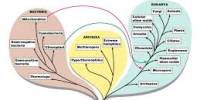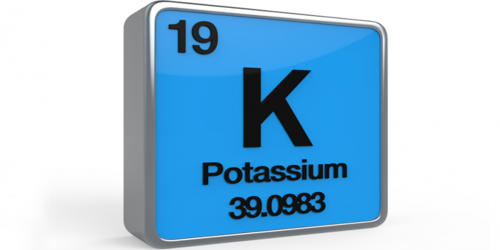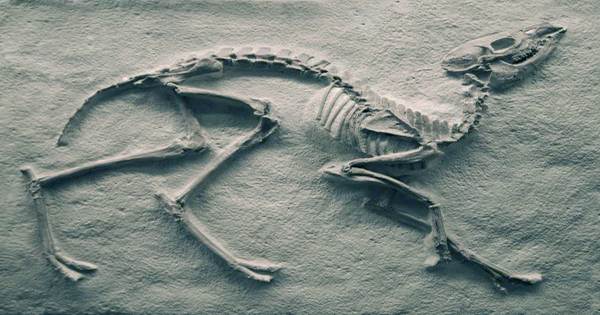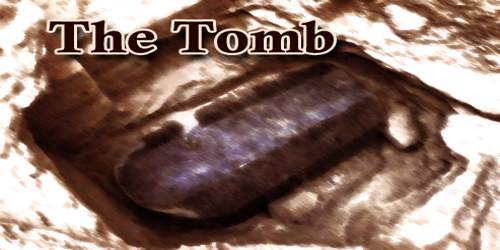Cholesterol
Definition
Cholesterol is a main component of blood plasma and cell membranes, and it is an important precursor of many steroid hormones, vitamin D2, and bile acids. In vertebrates, cholesterol is manufactured by the liver or absorbed from food in the intestine. Higher than normal amounts of cholesterol in the blood are associated with higher risk for developing coronary artery disease and atherosclerosis. It has a reputation for being associated with an increased risk for heart and blood vessel disease.
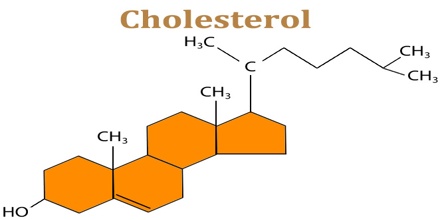
Cholesterol is also necessary to the normal permeability and function of the membranes that surround cells. A diet high in saturated fats tends to increase blood cholesterol levels, whereas a diet high in unsaturated fats tends to lower blood cholesterol levels. Although some cholesterol is obtained from the diet, most cholesterol is made in the liver and other tissues.
Cholesterol is the principal sterol synthesized by all animals. In vertebrates, hepatic cells typically produce the greatest amounts. It is absent among prokaryotes (bacteria and archaea), although there are some exceptions, such as Mycoplasma, which require cholesterol for growth. Two kinds of lipoproteins carry cholesterol throughout our body: low-density lipoproteins (LDL) and high-density lipoproteins (HDL). Having healthy levels of both types of lipoproteins is important.
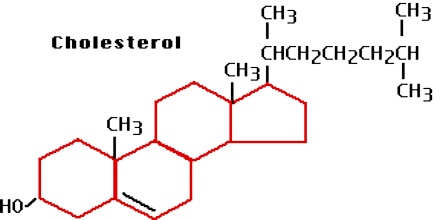
Functions of Cholesterol
Cholesterol is recycled in the body. The liver excretes it in a non-esterified form (via bile) into the digestive tract. Typically, about 50% of the excreted cholesterol is reabsorbed by the small intestine back into the bloodstream. It plays an important part in the human body. Its functions are as follows:
- Hormone Production. Cholesterol plays a part in producing hormones such as estrogen, testosterone, progesterone, aldosterone and cortisone.
- Vitamin D Production. Vitamin D is produced when the sun’s ultraviolet rays reach the human skin surface.
- Bile Production. Cholesterol produces bile acids which aid in digestion and vitamin absorption.
- Cell Membrane Support. Cholesterol plays a very important part in both the creation and maintenance of human cell membrane.
The liver is responsible for managing the levels of Low-Density Lipoproteins (LDL) in the body. It manufactures and secretes LDL into the bloodstream. There are receptors on liver cells that can “monitor” and try to adjust the LDL levels. Diet and genetics both play a factor in a person’s cholesterol levels.
Cholesterol is also a precursor molecule for several biochemical pathways. For example, it is the precursor molecule for the synthesis of vitamin D and all steroid hormones, including the adrenal gland hormones cortisol and aldosterone, as well as the sex hormones progesterone, estrogens, and testosterone, and their derivatives.
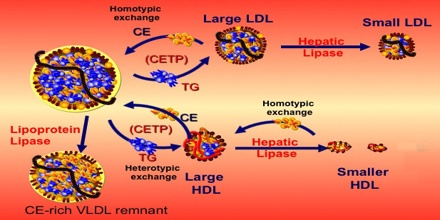
Classifications of Cholesterol
There are three types of lipoproteins that are categorized based upon how much protein there is in relation to the amount of cholesterol.
Low-Density Lipoproteins (LDL) contain a higher ratio of cholesterol to protein and are thought of as the “bad” cholesterol. Elevated levels of LDL lipoprotein increase the risk of heart disease, stroke, and peripheral artery disease, by helping form cholesterol plaque along the inside of artery walls.
High-Density Lipoproteins (HDL) are made up of a higher level of protein and a lower level of cholesterol. These tend to be thought of as “good” cholesterol because they can extract cholesterol from artery walls and dispose of them in the liver.
Very low-density lipoproteins (VLDL) contain even less protein than LDL. Total cholesterol is the sum of HDL, LDL, and VLDL.
In our bodies, cholesterol serves three main purposes: It aids in the production of sex hormones. It’s a building block for human tissues. It assists in bile production in the liver.
Reference: dictionary.com, medicinenet.com, nhlbi.nih.gov, wikipedia.

